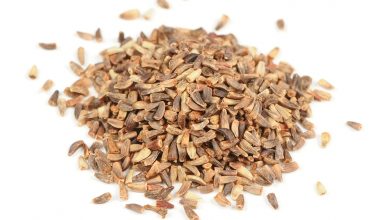Can You Wear A Retainer For The Rest Of Your Life?

If you’ve recently gotten your braces off, then you may have noticed that your orthodontist provided you with a teeth retainer . You’re probably wondering if you’ll need to wear it forever, and the answer depends on how well you maintain your teeth in the future. Your retainer works as an accessory to your teeth, not as part of them, so you can take it out at any time and go about your day without feeling discomfort or pain.
Teeth retainers are removable devices
The first retainer, according to Lachowicz, was made from gold and wire in 1728. They were heavy and uncomfortable, but they got a pretty good job done. Today’s retainers are completely different. Teeth retainers are custom-made by a dentist to match your teeth; they don’t require any glue or wires and are made of lightweight plastic.
Though retainers do require some skill to insert correctly, you can easily pop them in and out with your finger tips for cleaning or other reasons without any difficulty. Because of these advances, dental professionals don’t always discourage patients from wearing them indefinitely—though it is important that you follow instructions as to wear exactly where you wear it when cleaning it!
Types of retainers
Many orthodontists will make retainers to wear only at night. But, if you have a moderate to severe overbite or crossbite, your orthodontist may make a retainer to wear during waking hours. Make sure to follow any recommendations about how long you should wear a retainer for optimal results; it’s possible that wearing it longer than recommended could be harmful to your teeth and gums.
On average, most patients are advised to wear their retainers for two years after braces are removed. This is because it takes some time for new bone to grow in order to stabilize and hold everything in place. But, just as with regular toothpaste, there are other things that factor into how long you can or should keep using a retainer for: brushing habits (or lack thereof), oral health habits and bite strength come into play as well.
If properly cared for, your retainer can last for many years—perhaps even your whole life—but check in with your dentist regularly so they can assess whether its lifespan has passed by that point. That way, you can act accordingly.
Braces vs. retainers
Sure, you had braces as a kid, but what happens when they come off? Will you still need to wear a retainer? If so, how long will you have to wear it? This is a common question from adults considering braces. And while there’s no magic number of years (or months or days) that dictates how long you need to wear your retainer, there are some factors that should be considered.
First and foremost is your age: if you’re in your 20s or 30s and have plenty of time left for permanent teeth to grow in before natural tooth loss sets in at around age 45, then chances are slim that wearing a retainer will be necessary. That said, studies show that most people outgrow their retainers by age 14 – 16. So what about teenagers who aren’t quite finished growing yet? It depends on your dentist’s recommendation.
Teens with bigger mouths may need to wear retainers longer than their peers with smaller jaws do; regardless of size, teens who experience major changes in their mouth’s position during growth may also require a longer period of retention. As for adults, keep in mind that even if you don’t have missing teeth now—you could develop tooth loss later on due to trauma or disease. In other words, keep wearing your retainer!
How to take care of retainers
A retainer, which is a type of orthodontic appliance, is worn to keep teeth aligned properly after they have been straightened. This can include retainers used after braces or braces alternatives like aligners.. Traditionally, orthodontists would ask their patients to wear a retainer for life, and though that is still true in some cases, there are also times when your dentist will tell you that you don’t need to wear one forever.
Factors like how long you wore your braces and whether or not you followed all of your dentist’s instructions while they were in place are important pieces of information when determining if you should continue wearing a retainer even after treatment has ended.
When to get your teeth checked after getting your retainers
If you have had your retainers for longer than 2 years, it is a good idea to visit your dentist to get them checked. It may seem like an unnecessary hassle, but wear and tear on any dental appliances can affect their integrity after a long period of time.
Additionally, if you haven’t seen your dentist in over 6 months, now is a good time to see if there are any issues that may require addressing sooner rather than later. Most dentists recommend visiting every six months for routine checkups; however, your schedule and lifestyle may necessitate more or less frequent visits.
Regardless, ask your dentist when they think it’s appropriate to stop wearing retainers – generally speaking, most patients won’t need retainer therapy forever. Many dentists will recommend removing orthodontic devices once you feel comfortable with straightening teeth without one. In these cases, patients usually feel confident enough about keeping smiles straight without having to think about it all day as they would while wearing a retainer.
That said, everyone is different and our habits also play a role. In whether we should continue using our orthodontic appliances – so listen closely when discussing removal with your doctor!
Things to consider when wearing a retainer
Wearing a retainer for life is possible, but it’s not always necessary. As long as you have your teeth and gums in good shape, there’s no reason to wear a retainer indefinitely. Many people find that wearing a retainer on a part-time basis is sufficient for keeping their smile looking its best.
Talk to your dentist about what works best for you. Wearing a retainer too often can lead to some minor issues with jaw alignment. And may also lead to TMJ (temporomandibular joint) syndrome—temporary pain or discomfort. In your jaw that results from clenching and grinding your teeth. While wearing a retainer too much or at improper times of day.





